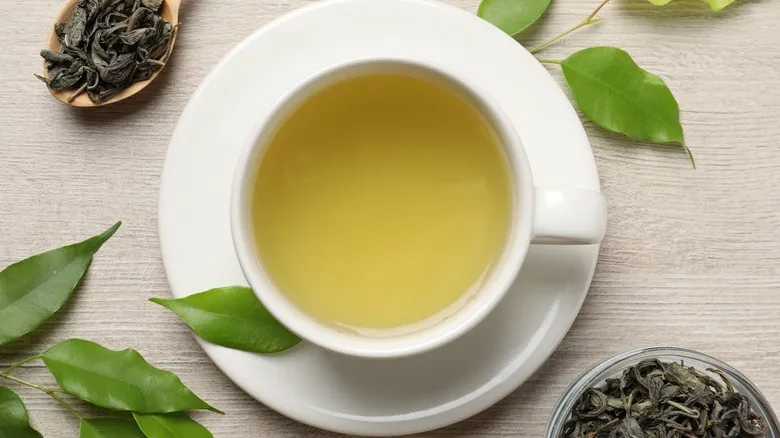For caffeine-free, your best bet is herbal tea
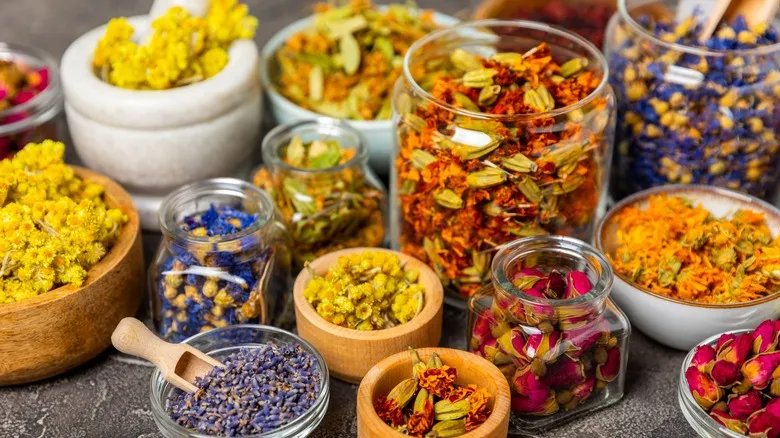
The positive aspect is that there are numerous non-caffeinated and low-caffeine beverage options available. Just take a look at Starbucks' offerings that feature low (or no) caffeine. Given that the brand is built around coffee, if a coffee giant can successfully cater to consumers seeking lower caffeine options, it’s clear there’s a demand for it. Choices vary from low-caffeine teas like Jade Citrus Mint Tea (which has up to 40 milligrams of caffeine in a 16-ounce serving) to the indulgent Chocolate Cookie Crumble Crème Frappuccino (containing just 15 milligrams of caffeine in 16 ounces). However, there is one Starbucks beverage that is completely caffeine-free: the herbal Mystic Mint tea.
Beyond Starbucks, the world of naturally caffeine-free herbal teas offers a wide array of flavors, and many come with additional health benefits. For instance, fennel tea aids digestion and reduces inflammation, while dandelion tea can help lower high blood pressure. There are also a variety of delicious fruit, floral, and root-based herbal teas and blends to discover. So, if you need to part ways with your morning pick-me-up for a while, don’t fret. Just remember to opt for herbal tea alternatives for a jitter-free experience.
Recommended

What Is Liquid Smoke And Why Should You Care?
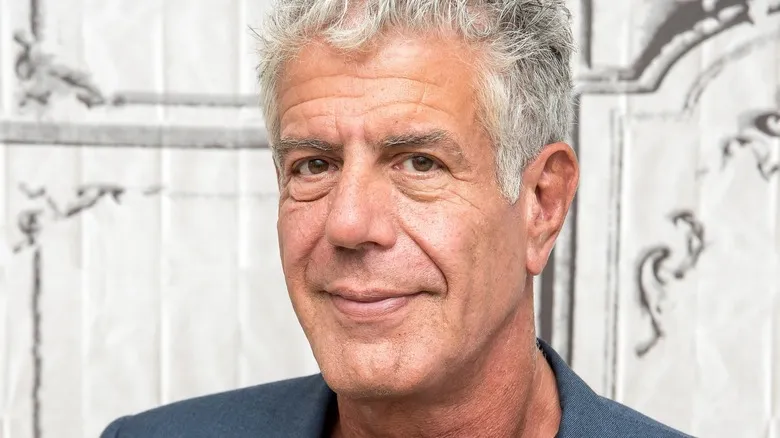
How Anthony Bourdain Felt About Modern Coffee Shops
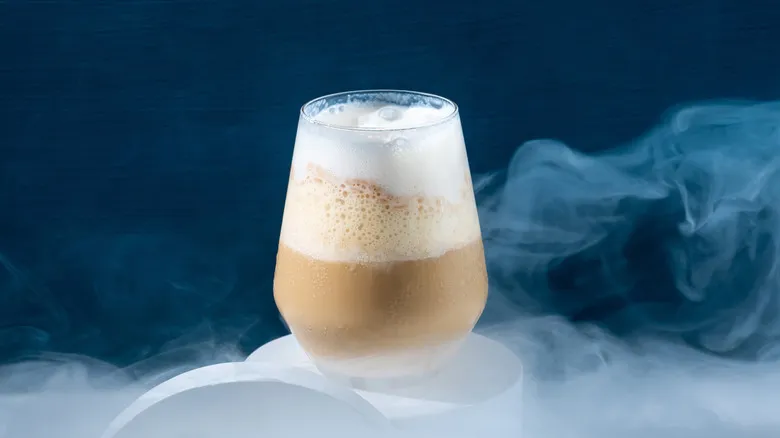
Give Your Iced Coffee An Elegant Upgrade By Smoking It (Yes, Seriously)
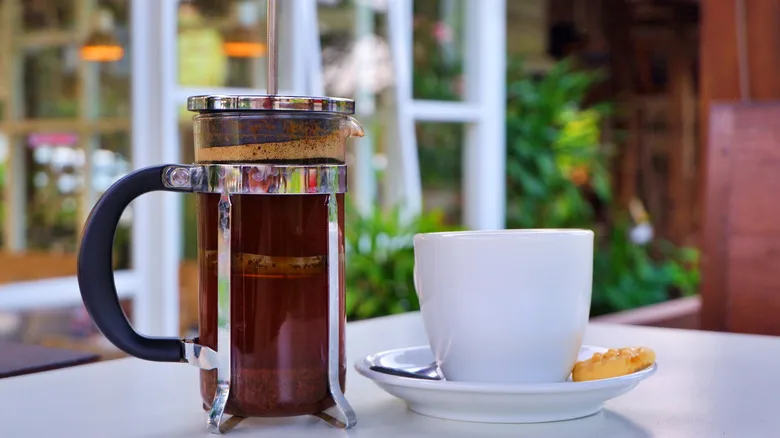
The Simplest Way Your French Press Coffee Machine Can Help Make Dinner
Next up

